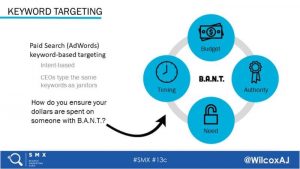I work with people both over and under the age of 50 who ask me for help on how to write an executive resume. In my work with baby boomers, 3 themes resonate.
They have impeccable work ethic, their careers are filled with amazing achievements that need to be conveyed persuasively into their resumes, and they have made 1 of 2 incorrect assumptions when it comes to job hunting.
Many job seekers over 50 make the mistake of thinking the job search process hasn’t changed much recently (it has), and others overestimate these changes.
First… What Has Changed – and What Hasn’t
YES – Applicant Tracking System technology must be considered when writing a resume. YES – networking takes place via LinkedIn and YES – video interviews are common.
Despite all the changes, two key aspects remain intact. PEOPLE are still working with PEOPLE to find and interview candidates, and making decisions about who to interview and who to hire is still performed by humans.
Here are a few things things you can do right away to make your job search successful…
7 Tips for Making a Job or Career Change at 50+
1. Don’t wait
A 2015 survey conducted by the AARP Public Policy Institute concluded those who start their job search immediately are more successful in landing a new role than those who held off or tried to time it perfectly.
2. Know Your Deal Breakers
Before starting your job search, ask yourself what is important. How many hours a week are too much? How much travel are you open to? How long a commute is tolerable? Are you open to temp or contract work or is a full-time role with benefits a requirement?
Being able to be clear with employers about these factors will save you from wasting time and will allow you to focus on opportunities that are a great fit.
Be careful about bringing these topics up too early when speaking with the company though. As a general rule of thumb, the first interview should be 100% about the job and your abilities, unless they ask about something else.
3. Identify What Skills Make You Stand Out
Let’s face it. You have more experience than your younger counterparts. This can translate into experience dealing with delicate situations with tact, and helping a company survive during tough economic times (30-somethings were not in leadership roles during the recession!) The value you can offer is critical to understand and communicate.
4. Create an Eye-Catching Resume
Your resume is not a step-by-step list of everything you’ve done. It needs to be a highlight reel!
Whether or not you seek advice on how to write an executive resume, make it catch attention by focusing on the last 10-15 years of experience, focusing on achievements rather than responsibilities, and formatting it to appeal to an ONLINE (not PRINT) read.
5. Figure Out Who You Know
If you’ve been working for 20 or 30 years, there’s a good chance your personal network of contacts is larger than your competition’s. In my experience, those who network to find a job find success much faster than those who focus on applying for roles online.
There’s a lot of competition online and it’s harder to stand out. Whereas you’ll immediately stand out (and almost certainly get interviewed) if you are introduced to a company directly..
My advice? Figure out who you know and start talking. One conversation can land you a job, but you need to take action and get the process started.
6. Over-Prepare For Your Interview
Today’s job interviews may be structured differently than they were in your last job search. Especially if it’s been more than a few years.
Panel or group interviews, multiple back-to-back interviews, and video or Skype interviews are more common.
Try to find out the format ahead of time by asking whoever scheduled your interview.
Once you’ve done that, research the people you’ll be speaking with (if you know their names). LinkedIn is a good place to start. Look to see if you have anything in common… mutual colleagues, interests, educational background, etc. That’ll make a good talking point.
And of course, one thing that hasn’t changed at all: You should know about the position, know what’s on the job description, know how the company makes money, who their CEO is, who their competitors are, and everything else like that before walking into the interview (or picking up the phone).
7. Stay Patient
It typically takes longer for someone over 50 to land a job. According to the Bureau of Labor Statistics, it takes an average of 37 weeks for people ages 55 – 64 versus 25 weeks for those 25 – 34.
There’s also the saying that for every $ 10K in salary you’re earning, you should expect your job search to take one additional month. So if you’re a high-earner, expect things to take longer! It’s not always the case, but you should prepare for it mentally.
Recap
In my experience working with clients of all ages who seek my advice on how to write an executive resume, baby boomers who are 1) prepared for the differences in job searching 2) remain confident in their experience and skills and 3) have strong resumes and LinkedIn profiles – find success in their job hunt. That’s what it takes to make a successful job/career change at 50+ in today’s market.
Business & Finance Articles on Business 2 Community(42)
Report Post






